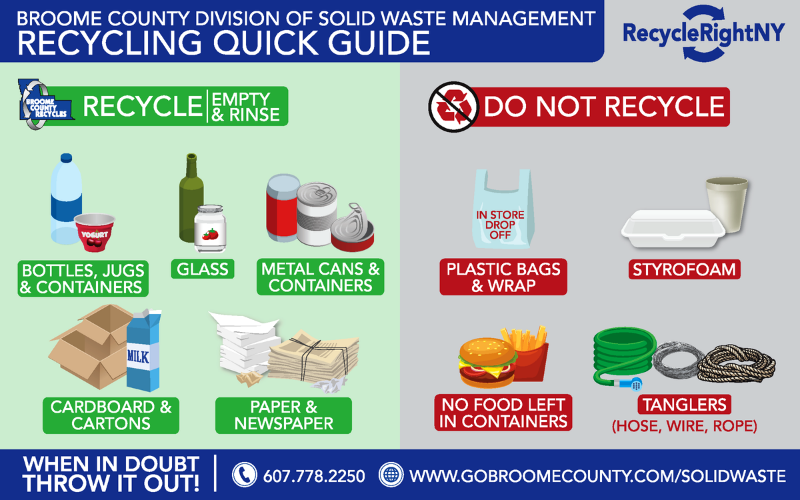Subject Guides
The Sustainability Hub
- Welcome to the Sustainability Hub!
- Events Toggle Dropdown
- Sustainability Resources Toggle Dropdown
- Environmental Justice
- Seed Library Toggle Dropdown
- TerraCycle
- Plant Buddies
- Mushroom Display
- On-Campus Sustainability Toggle Dropdown
- Local Sustainability Toggle Dropdown
- What Can I Do?
- Climate Resilience
Plastics
Plastics have become very widely used over the last few decades and are now polluting most of the worlds communities and ecosystems. Because this material only able to be reused and recycled a few times, it is more cost-effective for companies to produce new plastic than recycle it!
-
Plastic Free JulyThis non-profit has compiled resources to explain the consequences of using specific plastic products and provides specific alternatives for them! Even take the Plastic Free July challenge on their website!
-
Debunking Plastic RecyclingThis page was created to share where plastics are actually going instead of being recycled and what communities are most affected.
Recycling
Recycling is the process of breaking down waste into materials that can be used to create other products. This is an essential to reduce our waste, because it diverts our waste from entering the landfill or polluting our planet.

The EPA Waste Management Hierarchy shown above can help us understand how best to handle our waste. Recycling comes after prevention, reducing, and reusing since it is not always cost-effective. Because of this, not all companies will recycle the materials we put in the recycling bin! Reducing and reusing are much more effective ways at decreasing our waste, so we should always look to reduce and reuse before we recycle!
- Reduce! A lot of plastic is made to only be used once, so avoid it entirely! Try to find alternatives such as products in glass packaging, compostable packaging, or with no packaging at all!
- Reuse! Extend the lives of your plastic by finding other uses for them! This will keep them out of the garbage for longer and hopefully keep you from buying more single-use plastics in the meantime!
Something else to consider is whether the items you are using can be upcycled, recycled or downcycled!
- Upcycling is when one item is recycled to create a product of higher quality, for example using thread from clothes to create a rug that will last much longer.
- Recycling is when an item is recycled to create a product of the same quality, for example using glass from old bottles to create the same new bottles.
- Downcycling is when one item is recycled to create a product of lower quality, for example when cardboard is used to make toilet paper.
The infographic above is from Bag Affair, click on the link to read more about upcycling, recycling, and downcycling on their site! Although upcycling is most sustainable, downcycling is most common. At the end of the day, upcycling, recycling, and downcycling are all effective ways to keep waste out of our landfills and the environment for longer!
Watch the video below for a breakdown of what recycling really is!
Where to Recycle?
Below are resources specific to recycling guidelines in the Binghamton area! Read more about how to recycle in Broome County and at Binghamton University! And always be sure to clean out your plastic waste before recycling, as contamination is a huge problem in recycling!
Binghamton University
Binghamton University recycles paper, glass, plastics, metals, and more in the blue bins around campus, as long as they are free from contamination! Paper products include newspapers, paper bags, clean cardboard, and rinsed cartons. Accepted glass includes clear, brown, or green jars ad bottles free of any food or product residue. Many different plastics are accepted, including cleaned food, beverage, and toiletries containers, cups, reusable bottles, and more. You can also recycle metals such as tin and steel cans, clean foil, aluminum pans, metal pots and bowls, as long as they are free of contamination. The university also accepts batteries/ink jet cartridges at select locations on campus!
Visit the Binghamton University Recycling webpage for more information!
Broome County
Broome County also accepts a wide range of recyclables from residents. They encourage all participants to clean out their containers and other products to keep contaminants out of the recycling stream and ensure that your waste will be recycled! Below is an infographic displaying the most common materials they do and don't accept.

Visit the Broome County Recycling webpage for more information!
Sustainability Hub TerraCycling
In the Science Library, there is a TerraCycling station for all to use! TerraCycle is a zero-waste company that sponsors countless recycling programs for hard-to-recycle items such as chip bags, old pens, laundry detergent, shampoo bottles, used masks, contact lenses, and toothbrushes! The Sustainability Hub TerraCycling Station is pictured below!

Visit our TerraCycling webpage to read more about the programs we sponsor!
More Resources
Recycling Right New York is "an education and outreach effort informed by more than 100 recycling professionals from across New York State." The site has some great resources including information on how to recycle and why it is important, as well as an amazing Recyclopedia.

-
Recycling in the United States is in serious trouble. How does it work?This article highlights several recycling facilities in the United States and the current waste management issues we are facing.
-
Beyond PlasticsThis website features countless factsheets, research, and reports to best inform the public on waste and recycling!
-
7 Things You Didn't Know About Plastic (and Recycling)This National Geographic article lists several facts about the recyclability, quality, and health effects of plastics.
-
Myths of Plastic RecyclingThis page from the Equitable Sustainability Literacy Guide debunks many common misconceptions about plastic recycling!
- Last Updated: Dec 3, 2025 3:29 PM
- URL: https://libraryguides.binghamton.edu/sustainability
- Print Page
